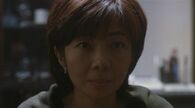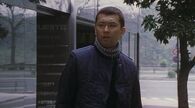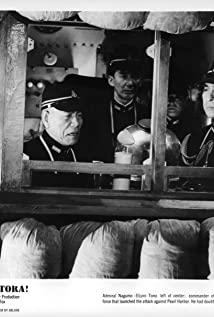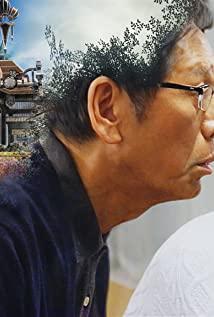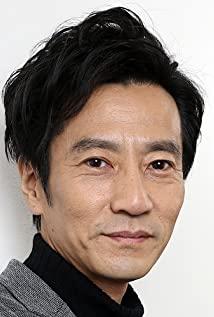The main line begins at a wedding, when the groom learns that his ex-girlfriend committed suicide by taking medicine, but she lost her memory when she was rescued. Knowing that it was parental pressure to force them apart, the groom resolutely leaves home to find his old love, trying to get the girl back to her lost memories. Because they were afraid that the girl would get lost, a red rope was tied between the two, just like two dolls. From then on, they wandered the world, through spring, summer, autumn and winter, and finally found the hotel in the mountain where they were engaged. The girl regained her memory at this time. People hug each other and cry.
Story 2, the gang leader who retired from the Jianghu, when he gradually forgot the sword and sword shadow of the past, suddenly remembered the day he left home when he was young. When he was sitting on the bench in the park to say goodbye to the girl he loved, the head was wrapped in a headscarf. The girl behind him shouted to him, "I will sit on this bench every Saturday at noon and wait for you with lunch...". So he came to the park, he saw a familiar scene, and when he thought that the gathering could only exist in memory, he saw the former girl who was still wearing a headscarf. He didn't reveal his identity but chatted with her as the first acquaintance.
Story 3: An ordinary young man deeply admires a beautiful female singer. He wears a plaque with her photo on him, the walls of his home are full of her posters, and he listens to and sings all her songs, and he is also in the queue for every autograph release of the photo album. The singer also thanked his loyal fans. Suddenly one day, the lovely singer's car had an accident on the way home. She was disfigured and quit the music scene. (How do I think of Selina) She has since decided not to let any of her supporters see this face. The young man destroyed his own eyes in order to see her. When the female singer saw him, she asked about his eyes, and he said lightly, "I think it's better not to see." So the singer and the young man walked hand in hand among the flowers, the young man played the harmonica, the singer sang, and finally the young man went home in relief.
Here, all the stories are tender and tender. So, why is this romantic film called "the most violent of all his films" by the violent director?
The young man who admired the singer was walking alone on the road at night and got into a car accident and died on the spot; the old man said goodbye to his lover and made an appointment for the next meeting, and he was shot at by the enemy not long after the main line. The middle boy finally hugged the girl who had returned to normal, but the two of them fell off the cliff on the way back. So far, the three stories have come to an end.
Therefore, the "violence" here is no longer "bloody" or "fight", but to describe the "violence" imposed by fate on people. Compared with the past, the "violence" of fate is obviously more unpredictable, and the recipients have no resistance and can only obey. "Just when the characters' lives were improving, they died suddenly. They didn't have time to prepare. From this, I think this is my most violent work... The reason is that the violence this time is unexpected. ." Kitano Takeshi said.
That's the theme of the film. Life is impermanent, how good food may be fleeting. The title of "The Doll" also reflects this point. People live in the world, and we are like marionettes, unable to control our own destiny. , inadvertently lost all. "Disillusionment" has appeared many times as the theme of Director Kitano. And the disillusionment of this film comes after a moment of warmth, whether this is a glimmer of hope in despair, or to show that hope will eventually return to despair, I don't know. As expressed in "Fireworks", life is a fleet of fireworks, the moment of explosion is a beautiful flower, and then it is a fire that goes out immediately.
Compared with the summer beauty of the more widely circulated "Summer of Kijiro", "Doll" is slightly better. The splendid cherry blossoms, blue sea and sandy beaches, red leaves and white snow depict the four seasons scenery that can be completely cut into a scenery film. The endless sadness in the beautiful picture also makes the audience "feel the tears and hate the birds." The director also seems to be saying, no matter how much you like a season, it still has to be replaced by the next season. The season is still like this, let alone life?
Kitano's unique editing and bold omissions are still iconic. Hisaishi used clean piano accompaniment for the entire beautiful film. Although the actors are young, they perform well, especially the heroine Miho Kanno who plays a girl with amnesia in this film. Her "transparent" performance successfully shaped this poor girl, quietly and lovingly.
We are all dolls controlled by fate.
View more about Dolls reviews



